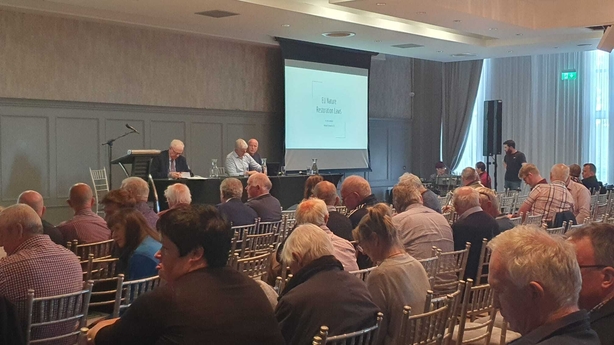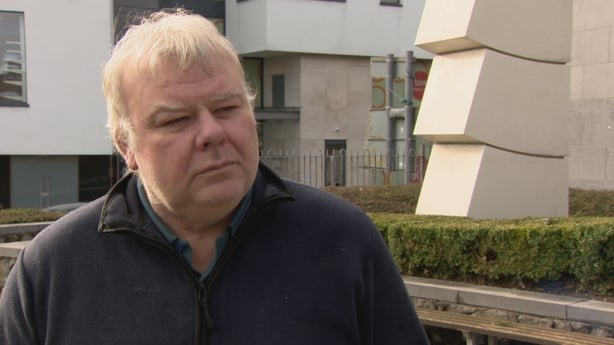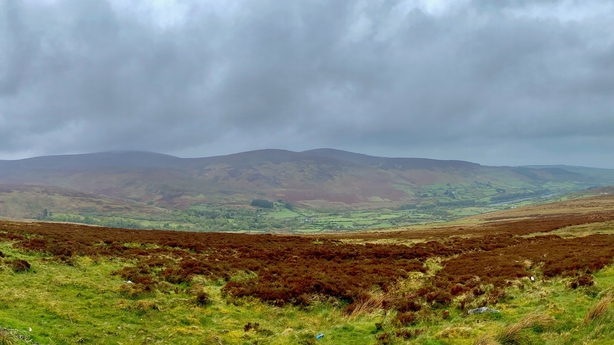Around 400 people have attended a public meeting in Ballinasloe, Co Galway to address concerns about the European Union's controversial new Nature Restoration Law.
Farming organisations say it will have severe consequences for Ireland's agricultural sector.
The proposed law seeks to reverse the decline in biodiversity and is due to go to a full vote at the European Parliament next week.
The meeting is being hosted by Independent TDs Michael Fitzmaurice, Marian Harkin and Michael McNamara.
They claim the future of agriculture and rural Ireland is endangered by the Nature Restoration Law and that collective action is called for.

Galway-Roscommon Deputy Fitzmaurice has been vocal in his opposition to these proposed measures, describing them as a "reckless regulation".
He argues that these strategies might result in the depopulation of rural Ireland.
"Imagine the implications if our lands are subjected to re-wetting. These laws will push our farmers off their land, out of business, and remove agriculture from our rural communities.
"They won't be able to operate in those areas anymore, and their reliance on EU subsidies will diminish," Mr Fitzmaurice said.
However, Minister for Agriculture Charlie MacConalogue and Minister for Heritage Malcom Noonan have both repeatedly stated however that the restoration of peatlands targets to 2050, which includes rewetting, contained in the EU Regulation, will be met by rewetting State lands and will not require the rewetting of any private farmland to meet the target.
Therefore there is no question of any farmer having to give up lands for rewetting under the current draft of the Nature Restoration Law approved by the Council of Ministers, on 20 June 2023, where the peatlands restoration targets were reduced to 50% (from 70%) by 2050.

The new law seeks to restore 20% of EU land to its natural state by 2030 and all eco systems by 2050.
Proposals for the re-wetting of peatlands is designed to reverse the decline in biodiversity.
Rewetting involves raising the level of the water table on peaty soils that were previously drained for agricultural use.
The EU Commission's proposal provides that the targets can be achieved across a range of areas, such as former Bord na Móna bogs and Coillte forestry.
Read more: Divided opinions on the EU's Nature Restoration Law
Restoration also includes reversing the decline of pollinating insects, increasing butterflies and birds on farms and increasing agricultural land with high diversity.
However, there has been strong opposition to the proposed new law with concerns about the impact on food production and farmers' livelihoods.
Today's meeting is also being attended by environmental organisations who say misinformation and scaremongering has been hugely damaging in the midst of what they describe as "catastrophic" biodiversity loss.

The Irish Wildlife Trust says that over 85% of our most important habitats are in bad or poor condition.
Birdwatch Ireland say two thirds of our birds are on red or amber lists with one third heading for extinction.
These groups say that over the past five years, the restoration of certain habitats, woodland, wild meadow and ponds had seen wildlife returning and flourishing.
The EU Nature Restoration Law is widely supported by the Citizens' Assembly in its call for urgent action to address biodiversity loss and restoration
The TDs hosting today's meeting are calling on the Government to guarantee that any restoration measures would be voluntary and that farmers participating in schemes will be financially supported for delivering services and solutions to restore nature.
The EU Environment Committee failed to approve the new law last month.
It will now go to a vote of all MEPs at the European Parliament next week with more amendments likely to dilute the ambitions of the restoration targets.







